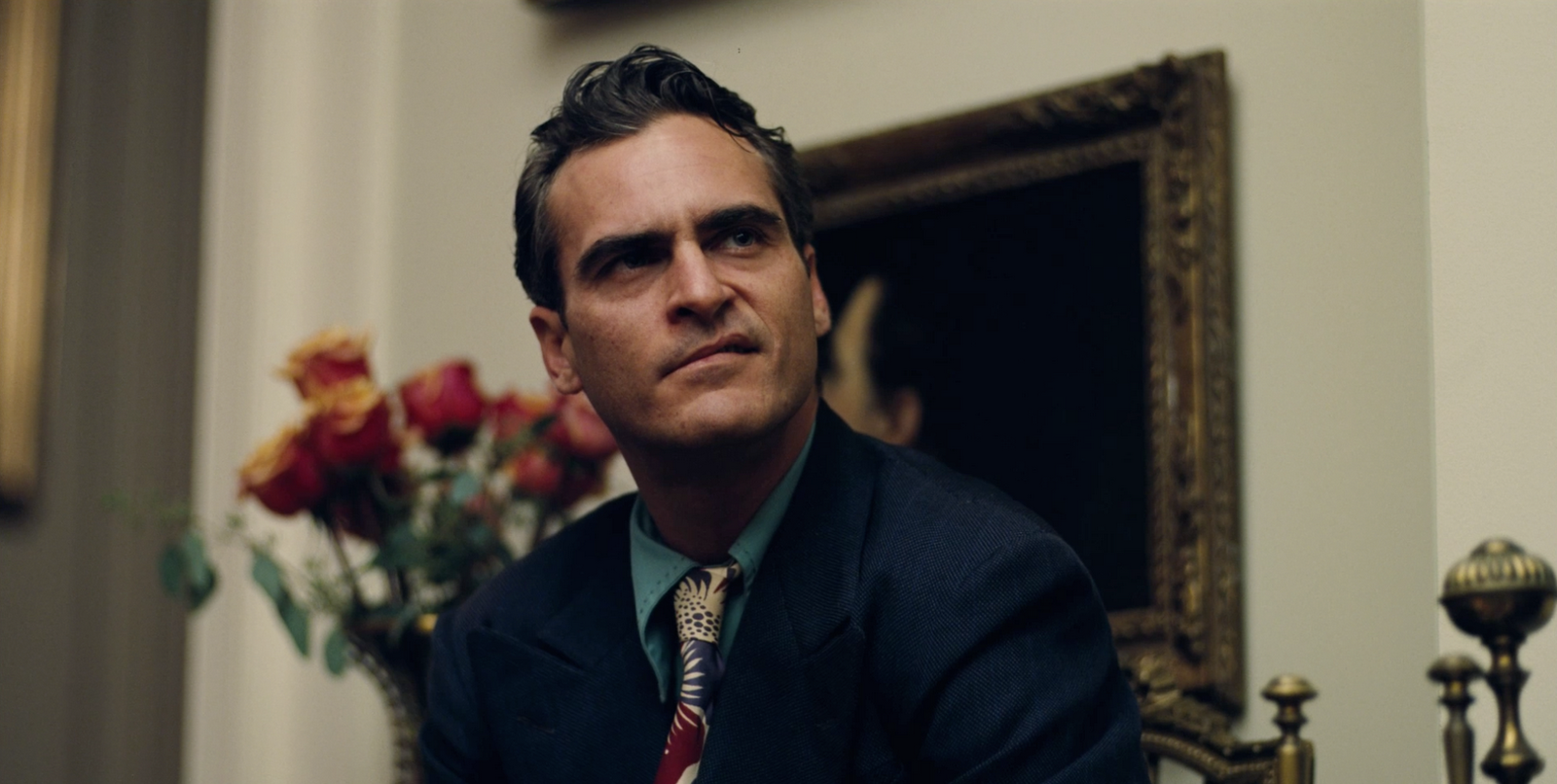

Fireworks never flash across the screen, but “The Master” celebrates the genius of acting, screen-writing, set design, directing and almost everything else about cinema with no less fuel and splendor. It is your typical Oscar suspect: an art-house independent film with more than a streak of ambition, an idolized director notable for his uncompromising style, a fierce cast, an intriguing story and as always, something contentious that nests at the tongue of the critics and the public alike. And yes, it is irresistible to an upper-middle class college town. In fact, last Friday night saw a packed main theater at the Amherst Cinema — an unusual spectacle.
Though early chatters surrounding a Hollywood project generally do not accurately predict the merit of its final quality, the situation changes when they focus on the director. For five-time Academy nominee Paul Thomas Anderson, the touted wunderkind who churned out contemporary classics such as “Boogie Nights” and “Magnolia” and returning with his first feature film since “There Will Be Blood” in 2007, “The Master” puts anticipation out of the question. In contrast, whether he would bring back his calm grittiness and idiosyncracies concerned Hollywood more. Fear not, Anderson fans, for “The Master” faithfully follows his legacy, even if it leaves out the darkness and ruthlessness that defined the haunting presence of his last critics’ darling.
As with “There Will Be Blood,” “The Master” projects both spreads of social landscape and anatomies of individuality without hesitation. Here, post-WWII America struggles with its inheritance of angst and pride, and ideological fervors begin to bubble angrily. Such is the environment that envelops retired navy and eccentric alcoholic Freddie Quell (Joaquin Phoenix), a soul tugged by sexual frustration, pompous contempt and outbursts of violence. After a slew of volatile episodes, he stumbles onto a ship and unknowingly enters the world of Lancaster Dodd (Phillip Seymour Hoffman), head of a new religious movement named The Cause.
Despite the diplomatic dodges of the production team, there is no getting around that The Cause resembles the Church of Scientology in more ways than one. Physical resemblance of the two spiritual leaders, connection with the navy, timeline overlay and identical names aside, the atmosphere of rejoice, rage and devoutness that clouds sound reasoning incubates division and controversy like no other. At the center of the division and controversy stands Freddie, whose inability to assimilate and embody The Cause despite Dodd’s personal mentorship divides the movement. Conflicts heat up as the movement sways halfway to endorse a new methodology that suggests imagination’s substitute for memory and past life’s trauma, the equally dubious former doctrines concocted by Dodd.
Concoctions come in more than one glass in “The Master,” and if the literal presentation of the word is any indication, the mixology of Dodd and Freddie’s dispositions is straight up and dry, without garnish or fancy, and altogether defies delicacy. A luridly fascinating wrangle, their relationship at once excites and provokes with force, just like the rush to Dodd’s head when he gulps down Freddie’s potion of paint thinners, hard liquor and darkroom liquids. Therefore, Mihai Malaimare Jr.’s exquisite cinematography wisely loosens its deliberate grip in scenes where Hoffman’s and Phoenix’s characters confront each other. The camera generously rests and focuses on the two actors, whose monstrous command of their roles moves mountains with a twitch of the eye or a tightening of the lips. The qualities of their energy could not have stood in direr contrast: Hoffman’s juicy execution of a man whose visions and temporal polarity vie for superiority is an elegant study of insidious instincts, while Phoenix’s explosive animalism and gawky embodiment of an unbridled but damaged creature is reminiscent of some of the best Method performances in Marlon Brando’s era. The to-and-fro of close-ups during the scene of Freddie’s first “processing” session reminds one of “Frost/Nixon” on steroids. It is orgasmic.
Beneath the wonder of acting (which also includes the delicate though overshadowed performance by Amy Adams as Dodd’s latest wife and backbone of the movement) runs a rhythmic development of narrative, weaving in elements of the contemporary psyche and the movement’s catapult into simultaneous institutionalization and spiritual abandon. Interludes of Freddie’s nautical voyages when he departs the navy and arrives at The Cause parallel those of the chapters in Anderson’s script. In the last interlude, Freddie runs away from the headquarters of The Cause to revisit his young lover, to whom he promised to return after discharge. Yet from that moment on, the film dampens its savage power and transforms into a collage of mere decisions and images. This turn casts confusion over Anderson’s intentions: is he trying to give us an open ending? Has his offence of charm and erratic spurs collapsed to a poetic shamble, or do they inject mystery for the incidents that stand superbly alone but lack a final verdict? In the end, Anderson’s eloquence and rawness leave little to doubt, but it is his conviction of perfection that is called into inquiry.
Well, let me tell you something: perfection is overrated. In this case, the glitch might be another magnet of the film that draws in acclaim and fandom. Like a well-placed scar on the face of a war hero, it might even act as a testimony of the brashness, bravery and bravado that “The Master” harnesses. Is there a more tantalizing way to live out the danger and seduction of the dominance of the mind? I doubt it.
It all started as a small ice cream parlor, by a group of muckrakers, and as of today it
is a renowned chain of restaurants in Taiwan.
and biggest of all, have her believing that she'd be foolish not to get again with
you once more. Millions of US dollars are made everyday
by the owners of dating sites through selling space or subscription.
Feel free to visit my web blog online dating site